The Haydn Quartet, later known as the Hayden Quartet, was one of the most popular recording close harmony quartets in the early twentieth century. It was originally formed in 1896 as the Edison Quartet to record for Edison Records; it took its new name when recording for other companies. The name was a homage to Joseph Haydn, the classical composer; the spelling was later revised to Hayden, which reflects the way it was pronounced. The group disbanded in 1914.
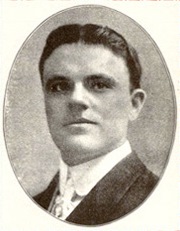
William Thomas Murray was one of the most popular singers in the United States in the early 20th century. While he received star billing in vaudeville, he was best known for his prolific work in the recording studio, making records for almost every record label of the era.
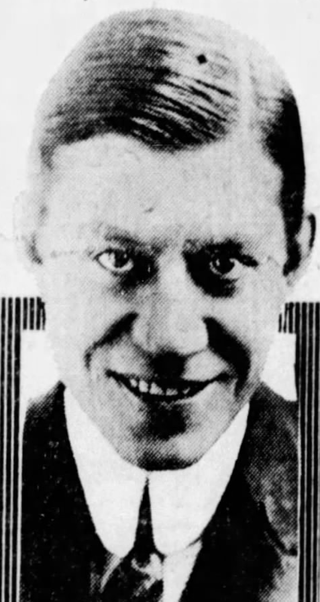
Egbert Anson Van Alstyne was an American songwriter and pianist. Van Alstyne was the composer of a number of popular and ragtime tunes of the early 20th century.

Ada Jane Jones was an English-American popular singer who made her first recordings in 1893 on Edison cylinders. She is among the earliest female singers to be recorded.
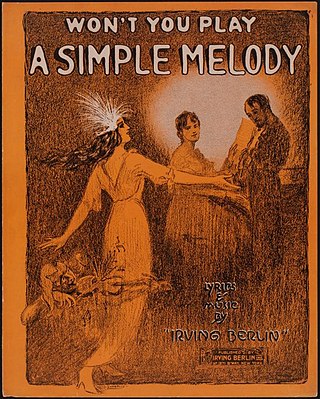
"Play a Simple Melody" is a song from the 1914 musical, Watch Your Step, with words and music by Irving Berlin. The show was the first stage musical that Berlin wrote. It ran for 175 performances at the New Amsterdam Theater in New York City. The one song from the show that is well-remembered today is "Play a Simple Melody," one of the few true examples of counterpoint in American popular music — a melody running against a second melody, each with independent lyrics. Two other of Berlin's so-called "double" songs are "You're Just in Love," and "An Old-Fashioned Wedding". In the printed music, first the "simple melody" plays alone. Then comes the contrasting melody. Finally, the two play together. The lyrics of "Play a Simple Melody" also track the counterpoint duet in that one singer yearns for the music which mother sang, but the other singer disdains such classic fare as lacking interest and rhythm. When "Play a Simple Melody" was published, ragtime was in its heyday, led by its most consummate composer, Scott Joplin. In a famous 1916 recording of the song, while Elsie Baker wants what she considers simplicity, Billy Murray explicitly asks for "rag". The song was also recorded by Walter Van Brunt and Mary Carson in 1915.

"Under the Anheuser Bush" is a beer garden song commissioned by the Anheuser-Busch brewing company in 1903. With music by Harry Von Tilzer and words by Andrew B. Sterling, the title contains a pun on the surnames of the company's founders.
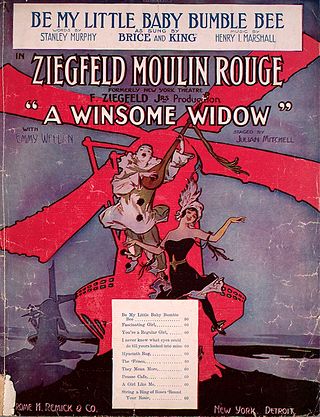
"Be My Little Baby Bumble Bee" is a popular song. The music was written by Henry I. Marshall and the lyrics by Stanley Murphy. The song was published in 1912, and appeared in the 1912 play A Winsome Widow.
"Charley, My Boy" is a song with music by Ted Fio Rito and lyrics by Gus Kahn. The Russo-FioRito Oriole Orchestra introduced the song in 1924. The most popular recording was released by Eddie Cantor. The sheet music was published for voice and piano by J. Albert & Son.

"Ain't It Funny What a Difference Just a Few Hours Make" is a popular song, introduced in the 1904 Broadway show The Yankee Consul, and briefly becoming a standard.
"He Goes to Church on Sunday" is a popular song published in 1907 with lyrics by Vincent Bryan and music by E. Ray Goetz. It was first introduced by Eddie Foy in the Broadway production of the musical comedy The Orchid. The song tells the stories of men who defraud people, but are considered honest because they go to church on Sundays. However, the song doesn't appear to be a criticism of religion, and the tone of the song is humorous and light-hearted.
I'm Afraid to Come Home in the Dark is popular song, written by Egbert Van Alstyne and Harry Williams in 1907, and made famous by Billy Murray. Today it is popular among collectors of cylinder recordings. Billy Murray recorded the song on several record labels, including Edison Records in 1908. This version is now in the public domain.

"In the Land of the Buffalo" is a popular song, first published in 1907. The chorus:
"Any Little Girl, That's a Nice Little Girl, Is the Right Little Girl for Me" is a popular song, first published in 1910, and written by Thomas J. Gray and Fred Fisher. Although largely forgotten today, a 1911 recording of the song by Billy Murray on Zon-O-Phone Records survives, and is widely accessible because the recording has entered the public domain. It was also featured in a Max Fleischer "Follow the Bouncing Ball" sing-a-long animated cartoon in the early 1930s. The song appears on the soundtrack of the 1933 film Stage Mother. Subsequently, in 1938 it was recorded for Bluebird Records by Shep Fields and his orchestra, with the accordionist John Serry Sr.

Bon Bon Buddy is a popular song, first published in 1907, with lyrics by Alex Rogers and music by Will Marion Cook. It was introduced in the 1908 musical Bandanna Land. Today the best-known versions of the largely forgotten song are by Billy Murray, who recorded versions in 1908 on both Victor Records and Indestructible Records.
Dear Sing Sing is a popular song, words by William Jerome, music by Jean Schwartz, first published in 1903. A popular singer of the time named Billy Murray recorded at least two versions in 1904, one for Edison Records and another for Victor Records. Both of these recordings are now public domain, and can be downloaded at several websites.
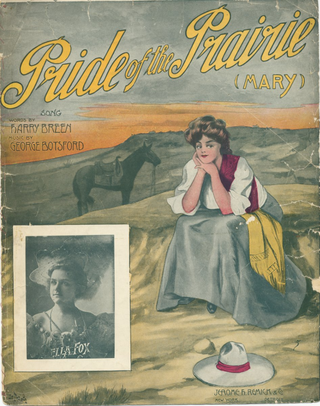
"Pride Of The Prairie" is a popular song written in 1907 with music by George Botsford and lyrics by Henry J. Breen. The lyrics tell of a cowboy's love for Mary, the "Pride of the Prairie".

"I've Got My Captain Working for Me Now" is a popular song written in 1919 by Irving Berlin. It was published by Music Publishers Inc. in New York, New York.
On the Old Fall River Line is a song composed in 1913 by William Jerome (words), Andrew B. Sterling (words) and Harry Von Tilzer (music) set on a steamship of the Fall River Line of steamships between New York and Newport, Rhode Island, which connected with trains from Newport to Boston. Von Tilzer had often traveled the line and was inspired by honeymooners "stirred to romantic depths by the alliance of shadowy darkness, twinkling stars, softly lapping waves and stately moving ships." Popular during World War I, especially among New England soldiers, it was also "much parodied." It is a cheerful, up-tempo ditty, but, typically of its time, "there is a final twist to married bliss with the final chorus line of: 'But I wish "oh Lord" I fell overboard, On the old Fall River Line.'" Described by the New York Times as "a popular song of a quarter century ago" in 1937, its full chorus was used that same year in Time Magazine's article on the passing of the old steamboat line. Although still garnering a place in Billboard's 1949 listing of "Harry Von Tilzer's Best Known Songs" as late as 1949 and being described as "a famous verse" by The Christian Science Monitor in 1950, a dozen years after the last ship had sailed, it is less remembered today, although not completely forgotten. Modern-day performers have included Steve Martin and Tiny Tim.
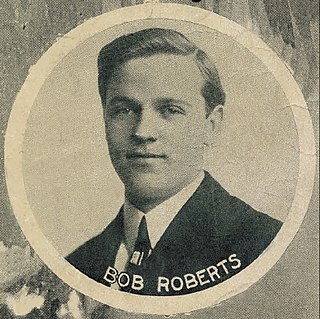
Robert S. Roberts, sometimes referred to as "Ragtime" Bob Roberts, was an American novelty singer and ragtime song composer in the early years of the 20th century.

Samuel Holland Rous, who recorded using the name S. H. Dudley, and less frequently as Frank Kernell, was an American singer, pioneer recording artist, and music business executive. He was unrelated to the black vaudeville performer and impresario Sherman Houston Dudley.













